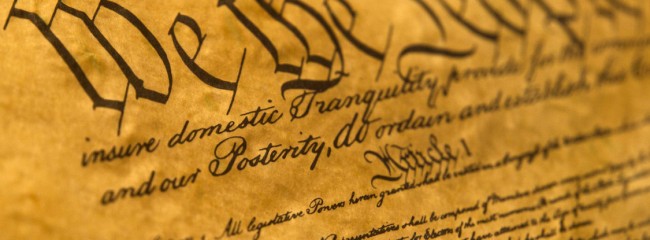Did you know all laws passed by Congress, the legislature of the United States, must have a power source in the U.S. Constitution? The various patent acts, i.e. the body of patent statutes (laws), passed by Congress over the years all must owe their validity to an enumerated power spelled out in the U.S. Constitution. This is true for our current patent act, the America Invents Act (AIA).
The majority of federal laws are linked to the “Commerce Clause” of the U.S. Constitution as their power source. But patent law is actually linked to a specific “Patent Clause” explicitly spelled out in the U.S. Constitution. Article I, Section 8, Clause 8 states, “To promote the Progress of Science and useful Arts, by securing for limited Times to Authors and Inventors the exclusive Right to their respective Writings and Discoveries.” It is from this single sentence that all U.S. patent laws flow from. Article I is the first article of the U.S. Constitution and it addresses the powers of Congress. Article II addresses the executive branch, i.e. the President and Article III addresses the judicial branch.
Some interesting ramifications from this Patent Clause. For one, this is why patents must have a limited lifespan. Additionally, the Patent Clause is also known as the “Copyright Clause,” as both patent law and copyright law owe their power source to this specific constitutional clause. Whereas in comparison, trademark law does not stem from an explicit constitutional clause addressing trademarks. Instead, trademark law owes its power to the Commerce Clause. Some repercussions flow from this. Because the Patent Clause was present when the States ratified and adopted the U.S. Constitution, the States gave up any jurisdiction over patent and copyright law matters. Which is why today, patent law is an exclusive federal law matter. Patent cases may not be heard in state courts, as these courts have no subject matter jurisdiction over patent law. Whereas with trademark law, states generally have concurrent jurisdiction with the federal courts.


Do I Need Actual Sales to Successfully Register a Trademark or Is An Offer to Sell Enough?
Searches – What is a Search and Why Order One?
You Mean I Have to Tell Them What! Your Duty to Disclose Under Rule 56
Avvo Q & A’s Answered by Attorney Eric Kelly
What Does the U.S. Constitution Have To Do With Patent Law?